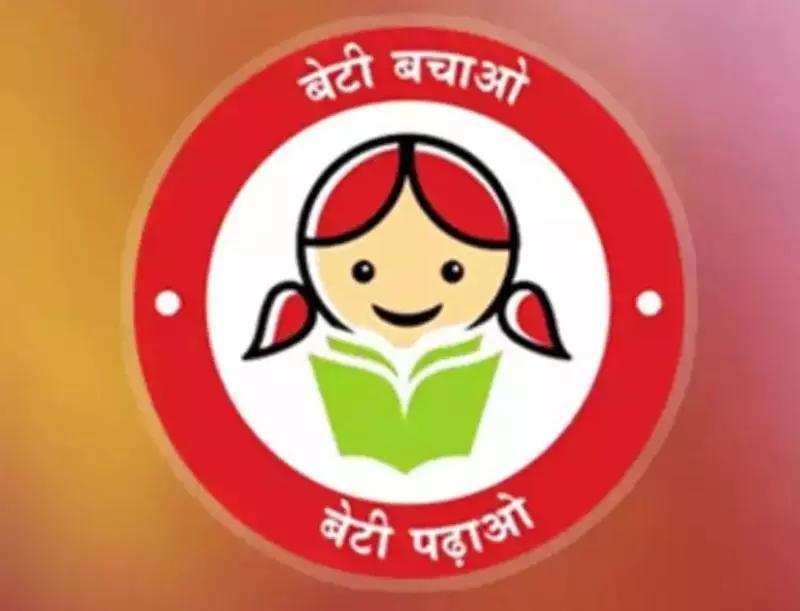
NEW DELHI: The Union Ministry of Women and Child Development celebrated the 10th anniversary of the ‘Beti Bachao Beti Padhao (BBBP)’ scheme on January 22. Launched in 2015, the Beti Bachao Beti Padhao scheme aims to protect, educate and empower girls and address gender imbalance and declining child sex ratio in India. To achieve the objectives of BBBP scheme, states, Union Territories and districts are implementing programmes tailored to local and stakeholder needs.Palamu district of Jharkhand, known for its rich cultural heritage, has long been facing social challenges affecting girls and women, especially the rural communities.
In sync with the 100 Din Sankalp Abhiyan in Jharkhand under the BBBP initiative, the Administration and Social Welfare Office of Palamu had launched a series of awareness programmes. The initiative was aimed at addressing the critical issues of gender inequality, women’s rights and child protection.
Palamu district of Jharkhand has achieved remarkable success in promoting a culture of gender equality and girls’ empowerment by adopting targeted weekly themes and organizing impactful programs through the “100 Din Beti Bachao, Beti Padhao” campaign. The campaign addressed critical issues like education, health and safety, ultimately enhancing the welfare and rights of girls, according to the Ministry of Women and Child Development.
In this special 100-day campaign, more than 70 programs were organized in Palamu district on various topics, including four programs involving 125 government officials and 22 field representatives and 216 beneficiaries were enrolled, the ministry said in a statement on Monday.
BBBP Week, a dedicated week within the 100-day campaign and the Pre-Conception Prenatal Diagnostic Techniques (PCPNDT) Enforcement Drive, organised three programmes with the participation of 54 officials and 8 local representatives, enrolling 178 beneficiaries. These programmes were specifically designed to address issues related to gender equality and child protection and their success underlined the impact of the initiative, it said.
The primary goal of the BBBP initiative in Palamu was to protect the rights of girls, promote gender equality and raise awareness about the importance of education for girls, it said.
Mission Shakti Week saw the highest enrollment of beneficiaries, with 280 participants, underlining the reach of the initiative. In total, 379 government officials and 104 representatives of local governing bodies supported these efforts, reaching out to 1,999 beneficiaries through thematic weeks focused on gender equality, skill development, legal awareness and community mobilisation. In addition, volunteers conducted door-to-door awareness campaigns, distributing stickers and pamphlets emphasizing gender equality and prevention of child marriage, the ministry said.
Community Engagement Programs The success of the campaign in spreading awareness on issues such as ending early marriage (ECM) and violence against women and children (EVAWAC) in Palamu through rallies, street plays and group discussions is a testament to the community’s involvement and value in the initiative.
Schools conducted essay competitions, signature drives and tree planting ceremonies, encouraging children to advocate for gender equality and environmental responsibility. The community’s commitment to girls’ education and development was evident in the distribution of annual Shishu Kits and Academic Excellence Awards.
These initiatives were designed to support new born girls and motivate students, emphasizing the community’s dedication to their education and development.
The initiative included various activities including inauguration ceremonies, awareness meetings with adolescents, oath taking programs, rallies and discussions on important issues such as child marriage and gender-based violence. The level of participation varied across different programmes, with some activities such as oath taking and rallies involving 59,640 women participants.
Posters displaying key messages were made and put up in 165 out of 265 selected panchayats in Palamu and in 14 ICDS projects through Lok Sabha (LS), AWW, Jharkhand State Livelihood Promotion Society (JSLPS), gender community resource persons (CRPs), self-help groups (SHGs) and NGO representatives. Short video clips, campaign messages and social media posts addressing child protection were disseminated through local channels. IEC material was distributed to all AWC and JSLPS teams to promote awareness efforts at the grassroots level.
The initiative involved a variety of activities including inaugural ceremonies, awareness sessions with adolescents, oath taking events, rallies and discussions on important issues such as child marriage and gender-based violence. Many community members participated, especially women, who were particularly active in community engagement events such as rallies.
All age groups participated meaningfully in the initiative, particularly in the 7-18 and 18-55 age groups. Participants were significantly higher among women, reaching 180,965, as well as 1,440 men and 82 individuals identified as disabled or transgender. The initiative verified its reach and impact through photo documentation, video recordings and attendance records. The campaign outputs reflect increased awareness within the community, which is likely to lead to long-term reduction in child marriage rates and stronger support for girls’ education.
The Central Government also appreciated these initiatives under BBBP in Palamu.
Collaborative efforts between the Government, Schools and NGOs increase the reach and impact of gender equality initiatives. Early involvement of parents and teachers ensures more significant community participation and promotes sustained engagement. The BBBP campaign promoted substantial community participation while achieving significant milestones.
The multi-faceted approach of the BBBP initiative brought about significant positive changes in Palamu district, including increased community participation, improved educational outcomes, and improved safety measures, providing solid evidence of the program’s success, it added.


